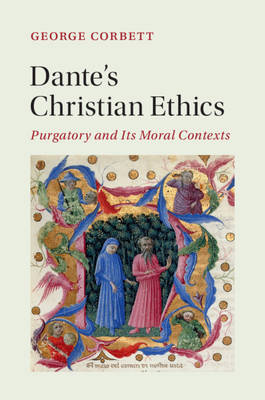
Je cadeautjes zeker op tijd in huis hebben voor de feestdagen? Kom langs in onze winkels en vind het perfecte geschenk!
- Afhalen na 1 uur in een winkel met voorraad
- Gratis thuislevering in België vanaf € 30
- Ruim aanbod met 7 miljoen producten
Je cadeautjes zeker op tijd in huis hebben voor de feestdagen? Kom langs in onze winkels en vind het perfecte geschenk!
- Afhalen na 1 uur in een winkel met voorraad
- Gratis thuislevering in België vanaf € 30
- Ruim aanbod met 7 miljoen producten
Zoeken
€ 183,45
+ 366 punten
Uitvoering
Omschrijving
This book is a major re-appraisal of the Commedia as originally envisaged by Dante: as a work of ethics. Privileging the ethical, Corbett increases our appreciation of Dante's eschatological innovations and literary genius. Drawing upon a wider range of moral contexts than in previous studies, this book presents an overarching account of the complex ordering and political programme of Dante's afterlife. Balancing close readings with a lucid overview of Dante's Commedia as an ethical and political manifesto, Corbett cogently approaches the poem through its moral structure. The book provides detailed interpretations of three particularly significant sins - pride, sloth, and avarice - and the three terraces of Purgatory devoted to them. While scholars register Dante's explicit confession of pride, the volume uncovers Dante's implicit confession of sloth and prodigality (the opposing subvice of avarice) through Statius, his moral cypher. This title is also available as open access on Cambridge Core.
Specificaties
Betrokkenen
- Auteur(s):
- Uitgeverij:
Inhoud
- Aantal bladzijden:
- 246
- Taal:
- Engels
- Reeks:
- Reeksnummer:
- nr. 110
Eigenschappen
- Productcode (EAN):
- 9781108489416
- Verschijningsdatum:
- 12/03/2020
- Uitvoering:
- Hardcover
- Formaat:
- Genaaid
- Afmetingen:
- 163 mm x 231 mm
- Gewicht:
- 453 g

Alleen bij Standaard Boekhandel
+ 366 punten op je klantenkaart van Standaard Boekhandel
Beoordelingen
We publiceren alleen reviews die voldoen aan de voorwaarden voor reviews. Bekijk onze voorwaarden voor reviews.









